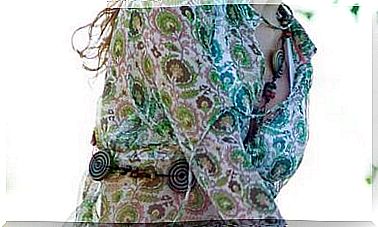Are Children Afraid Of The Dark?
Mothers and fathers, with our words and our way of parenting, make a big difference in how fears affect our children.

Popular belief tells us that fear of the dark is inherent in our species. As extremely vulnerable animals, human beings have evolved, over millions of years, perfecting protection strategies against other predators, especially nocturnal ones.
Likewise, all mythologies and stories for children present darkness as an abominable source of danger, for which reason it is reasonable to think that this is a universal fear inherent to the human being.
However, and without denying that there may be a biological basis at the root of this fear, the truth is that the fear of the dark is born directly from the type of parenting and the messages we receive as children about the dangers, or not, that can emerge from the shadows of the night.
In this regard, parents can greatly influence to mitigate the weight of these fears or to turn them into a gigantic monster that blocks children in their daily lives.
The Lamp and Shadows Experiment
Imagine that, already in bed about to sleep, the light of a street lamp filters through the slits of the blind, drawing random figures on the wall. When combined with the darkness of the room, it is likely that, among these shadows, a child detects shapes whose appearance frightens him (unconsciously, they bring back memories and sensations of drawings, scenes, stories or experiences that at the time created fear).
Let’s not forget that our brain tends to imagine faces or figures before any neutral image; This phenomenon is known as pareidolia, so logically, at first, at the sight of these strange shapes, any child would be scared.
However, now we will see how, faced with this same situation, the different reaction of parents can make a huge difference for children.
Today I want to show you three different ways of reacting to this scene capable of causing fear in a boy (or girl) of more or less two or three years of age.
Depending on how the parents deal with the situation, it can become something innocuous and even fun for the little ones or, on the contrary, it can constitute the germ of a fear that the child will carry for life.
Situation 1: Explain the origin of the shadows
It consists of offering the child a natural and objective explanation of what is happening so that he understands what scares him and loses his fear. It can be clarified that these shadows are nothing more than the reflection of the light from the streetlight that filters through the blind.
If the little one feels listened to and cared for in their fears, it will increase their security and their self-esteem will not be damaged.
Reaction: If you get a logical explanation for the event, your imagination will no longer fuel your fears.
A similar scene happened to me one night when my daughter, who would be three years old at the time, was sleeping. I explained to her that this was the light from a streetlight, I opened the blind so that she could see the streetlight on the street, and from that day on, the streetlight became a nighttime companion that helped her relax to fall asleep.
Situation 2: Downplaying the issue
A very common option in many families is to downplay the fear that the child feels in front of these shadows (and in front of their fears in general) and act as if nothing is wrong.
By doing this, the adult causes a very dangerous uncertainty and a very serious conflict between what the child feels and what is said from the outside.
Reaction: The child, not feeling heard or supported, ends up shutting up and not talking about it.
The problem seems non-existent or disappeared but inside the creature, the fear persists. However, by not feeling supported by his parents or caregivers, he ends up doubting himself, his emotions and his feelings.
Situation 3: Use fear to subdue
This option is not so frequent, but more than one adult has come to my practice who had serious consequences for the behavior that, at the time, their elders had when they communicated their fears.
Some parents, motivated by their own abusive childhoods, believe that scaring children is a harmless game. Surely, they did it with them when they were little, they have forgotten how bad they felt then and do not hesitate to repeat it with their children.
These parents take advantage of their little ones’ most vulnerable moments to instill more fear in them, speaking of monsters that lurk in the dark to kidnap them and of ghosts that come at night to watch over them while they sleep.
The idea behind this unhealthy behavior is to subdue the little ones through fear. The same father who inoculates fear later presents himself as protector and savior, thus creating an unhealthy dependence on his son.
Reaction: The little one, smaller and defenseless, clings to his father as the only savior.
The little boy does not realize that it was his father himself who caused him to fear and who stole his protective instincts and his self-esteem.
In short, we must be aware of the responsibility we have as parents not to burden our children with unnecessary fear. Instead of increasing their fears, we must help them to have a logical and critical point of view in any situation.
In this way, they will be much more independent in their future and less susceptible to being manipulated.








